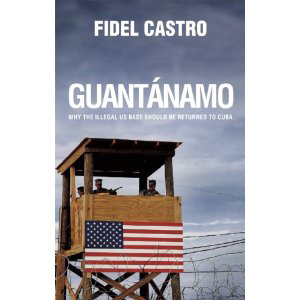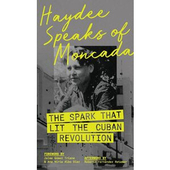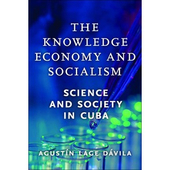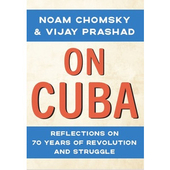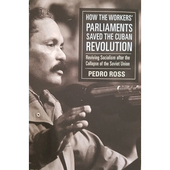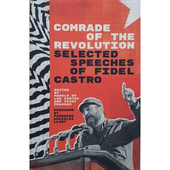Guantanamo - Why The Illegal Base Should Be Returned To Cuba
Author Fidel Castro
A critical history of the US base in Cuba, formed from a collection of Castro's writings in the Granma newspaper. addressing the historical debate about the legality of the US occupation of Cuba, preceding its use as a prison for the War on Terror. With forewords by Noam Chomsky, Nadime Gordimer and Rigoberta Menchu.
| Publisher: Ocean Press | ISBN no: | Year:2010
£12.49 inc p&p
| Check Basket |
Guantanamo is one of the few books to address the US occupation of the bay from a Cuban perspective. Since it was first seized after the Spanish-American war over 100 years ago, the US base has represented a permanent source of provocation and a blatant violation of Cuba’s sovereignty. It operates without the consent of Cuba and is considered illegally occupied – something which the world’s media often doesn’t make clear.
Both readable and concise, it is an invaluable resource for anyone interested in understanding the background and on-going injustice surrounding Guantanamo Bay. A comprehensive chronology overviews the long history of war and imperialist treaties imposed on Cuba and an extensive collection of primary sources includes recently declassified documents from the Cuban Missile Crisis.
Castro first denounced the illegal occupation of Guantanamo in 1959 and, in this extended essay, he reiterates the case and places it within the context of Washington’s plan to overthrow the revolutionary government. Castro charts the changing role of Guantanamo vis-à-vis American foreign policy and argues that it has evolved from an annexationist tool to a counter-revolutionary hub.
Roger Ricardo contends that America’s ongoing occupation is motivated by political rather than strategic concerns and represents a symbol of US power that is used to obtain concessions from Cuba.
Olga Miranda considers the legal history of the occupation and examines the possibility of it ending. She concludes that any resolution is complicated by the myriad of treaties and amendments – many of which appear in the appendix – that entrench the on-going historical injustice.
The book’s significance lies in the fact that it focuses, not on the atrocities carried out by America in the Guantanamo prison as part of the ‘war on terror’, but on the fact its very existence contravenes international law and acts as a permanent affront to Cuba’s sovereignty.
Dan Smith
